“Civil War” would likely have been a political maelstrom if it came out in 2021, 2022, or 2023. Yet, releasing a large-scale movie about a modern American Civil War in 2024, months before a presidential election that some fear will end – or that some want to end – with real civil war is a far more massive statement, no matter how much writer/director Alex Garland sidesteps the issue. However, it’s far from the first such on-screen statement made during a presidential election year.
“Civil War” may not be the only movie before November 2024 to evoke election year fears, especially with “The Apprentice” showcasing Sebastian Stan as 1980s Donald Trump soon. Either way, those films and any other election year surprises look to join these past movies/political statements as cinema’s biggest pre-presidential Election Day stump speeches.
“Borat Subsequent Moviefilm” (2020) The sequel to Borat was an October surprise in more ways than one. Even Sasha Baron Cohen himself may not have expected just how shocking the film would become—from the pandemic upending the third act to Rudy Guiliani’s scandalous interview—and its aftermath. However, Cohen first envisioned it, and he certainly brought Borat back to make some kind of massive statement about Trump-era America right before voting audiences decided to embrace or repel it.
The sequel to Borat was an October surprise in more ways than one. Even Sasha Baron Cohen himself may not have expected just how shocking the film would become—from the pandemic upending the third act to Rudy Guiliani’s scandalous interview—and its aftermath. However, Cohen first envisioned it, and he certainly brought Borat back to make some kind of massive statement about Trump-era America right before voting audiences decided to embrace or repel it.
Whether or not “Borat Subsequent Moviefilm” actually played a real part at the ballot or mail-in voting box, it definitely made an impact elsewhere. With its Oscar nominations for Best Adapted Screenplay and for breakout star Maria Bakalova to Cohen also getting his own Oscar nomination for 2020’s other major political film, “The Trial of the Chicago 7,” 2020 put Cohen at the political and pop culture center in a way not even the original “Borat” pulled off before the 2006 midterms.
“Lincoln” (2012) Looking back, “Lincoln” is a movie that either came out four years too early or four years too late. On one hand, it is certainly a product of a simpler time, even though it was about the most incendiary political warfare in American history prior to the Trump era. Nonetheless, “Lincoln” showed how political compromise, horse trading, uneasy alliances, and righteous use of Presidential power enshrined the end of slavery into the U.S. Constitution, even during the Civil War.
Looking back, “Lincoln” is a movie that either came out four years too early or four years too late. On one hand, it is certainly a product of a simpler time, even though it was about the most incendiary political warfare in American history prior to the Trump era. Nonetheless, “Lincoln” showed how political compromise, horse trading, uneasy alliances, and righteous use of Presidential power enshrined the end of slavery into the U.S. Constitution, even during the Civil War.
That kind of message was undoubtedly easier to support in 2012, but one could argue it should have been saved for 2016 when people really needed to hear it. Now, in 2024, the message of both the movie “Lincoln” and the real Lincoln is more lost than ever, making Steven Spielberg and Daniel Day-Lewis’s reenactment look all too valuable or all too naïve all these years later.
“W.” (2008) Like “Borat Subsequent Moviefilm,” “W.” was a movie fast-tracked to release before a Presidential election in the hopes of urging viewers to vote against the policies of a sitting, much-maligned Republican President. In this case, Oliver Stone brought George W. Bush’s life story to the big screen months before he left the White House and weeks before Barack Obama was elected to fix what Bush broke in America and around the world.
Like “Borat Subsequent Moviefilm,” “W.” was a movie fast-tracked to release before a Presidential election in the hopes of urging viewers to vote against the policies of a sitting, much-maligned Republican President. In this case, Oliver Stone brought George W. Bush’s life story to the big screen months before he left the White House and weeks before Barack Obama was elected to fix what Bush broke in America and around the world.
Yet, despite the clear anti-Bush sentiment by the fall of 2008 and Stone’s inflammatory track record, “W.” was not quite the call to arms that everyone expected. In fact, some argued that Stone was far softer and more sympathetic towards W. than anticipated, at least compared to what the Stone of “JFK” or “Born on the Fourth of July” would surely have done. At the minimum, Josh Brolin’s version of Bush was more of an actual human being than most Bush impressions/caricatures/parodies until that point.
Ultimately, “W.” came and went without the box office and without the political or award season impact Stone wanted, though America finally turned the page on the real W regardless.
“Fahrenheit 9/11” (2004)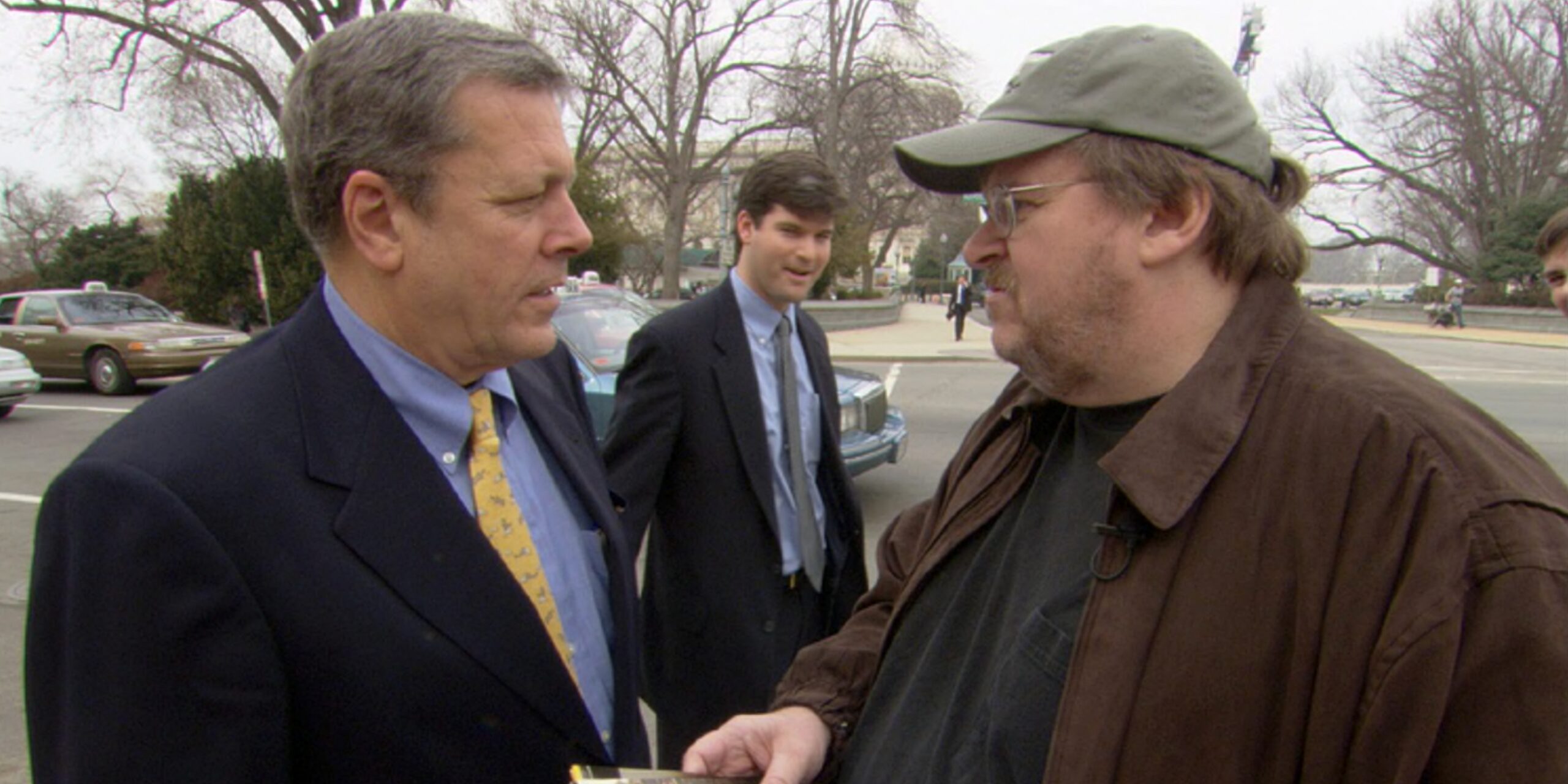 Until “W.,” the most high-profile big-screen attack on the Bush administration and its policies was from a documentary. Yet, this happened to be the biggest documentary of all time, from the most high-profile documentarian of his time.
Until “W.,” the most high-profile big-screen attack on the Bush administration and its policies was from a documentary. Yet, this happened to be the biggest documentary of all time, from the most high-profile documentarian of his time.
More than a year after Michael Moore’s famous Oscar night protest speech against Bush’s Iraq war, the “Bowling for Columbine” Oscar winner stretched out his attack on Bush’s presidency – before and during the war – for much longer than just one speech. But, “Fahrenheit 9/11” mainly dealt with Bush in the context of 9/11, showing new and old footage and revelations to highlight his actions and inaction on that day and beyond and how it led to his detour in Iraq.
Unlike the previous films on this list, Moore didn’t wait until right before the election to release his findings. He was right to do so in one context since “Fahrenheit 9/11” became a summer blockbuster, a Cannes Palme d’Or winner, and the highest-grossing documentary of all time. But, since Bush won in November anyway, despite all of that, it may have been better for Moore to hold off until at least October.
“Team America: World Police” (2004)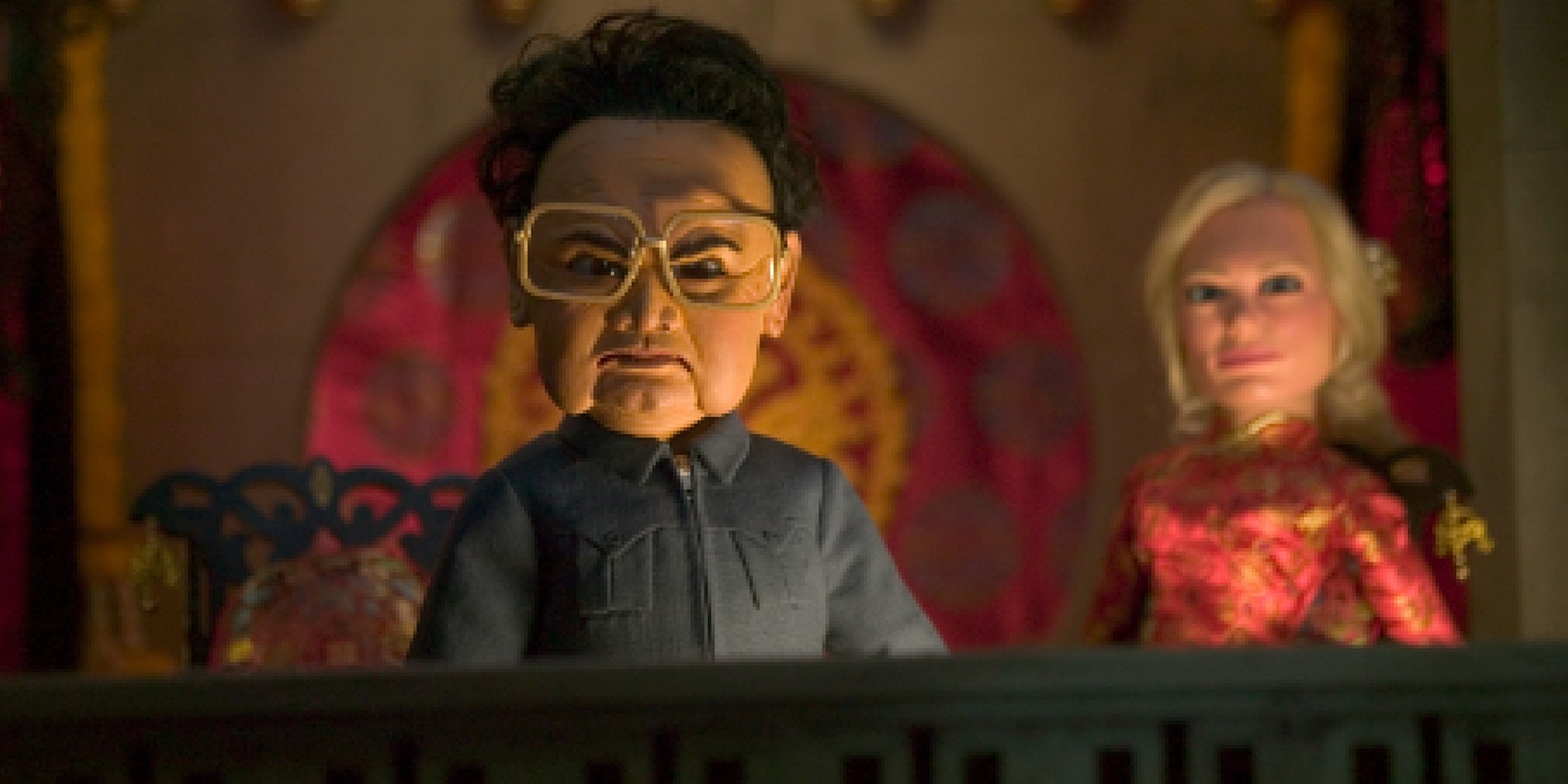 If “Fahrenheit 9/11” had been released in fall 2004, it would have at least created the double feature of the year. Instead, “Team America: World Police” had the political big-screen limelight to itself that fall, along with its version of a puppet Moore as a suicide bomber.
If “Fahrenheit 9/11” had been released in fall 2004, it would have at least created the double feature of the year. Instead, “Team America: World Police” had the political big-screen limelight to itself that fall, along with its version of a puppet Moore as a suicide bomber.
Trey Parker and Matt Stone’s puppet comedy was more a spoof of Michael Bay-esq action films than a spoof of the Bush/war on terrorism era. But, in so far as it did comment on the war and Bush’s action movie-style foreign policy, the “South Park” duo chose to say that the real threats to liberty – beyond foreign terrorists and Kim Jong Il – were Hollywood liberals who wouldn’t let America blow up whatever and whoever it wanted. Needless to say, at least half the country really wouldn’t say that argument holds up comedically or politically 20 years later, except for maybe the Alec Baldwin parts.
“Malcolm X” (1992)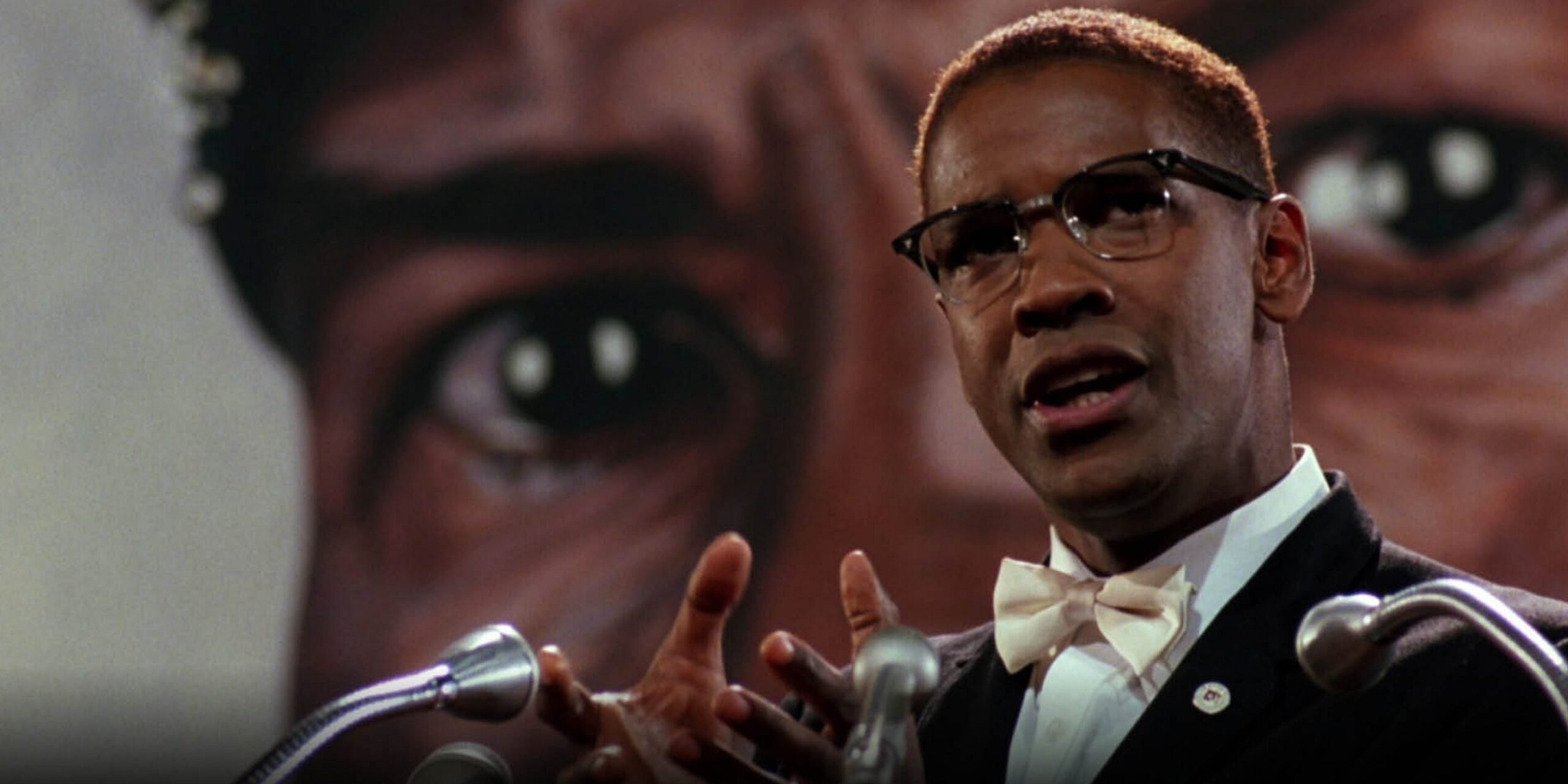 “Malcolm X” technically came out a few days after the 1992 Presidential election, when the country had elected Bill Clinton and put an end to 12 years of Republican White House rule. But, while those who celebrated the election surely argued that change had finally come, “Malcolm X” was a loud counterpoint that far more needed to change beyond whatever white man was in the Oval Office.
“Malcolm X” technically came out a few days after the 1992 Presidential election, when the country had elected Bill Clinton and put an end to 12 years of Republican White House rule. But, while those who celebrated the election surely argued that change had finally come, “Malcolm X” was a loud counterpoint that far more needed to change beyond whatever white man was in the Oval Office.
After the Rodney King beating and a burning American flag played in the opening credits alone, Spike Lee and Denzel Washington spent the next three-plus hours making a rallying cry against American racism, then and now. In that regard, “Malcolm X” went beyond making an election-year statement since this kind of rallying cry is relevant to pretty much every year. Nonetheless, it rang out even louder after the King riots and right at the very end of the Reagan/Bush era.
“All The President’s Men” (1976)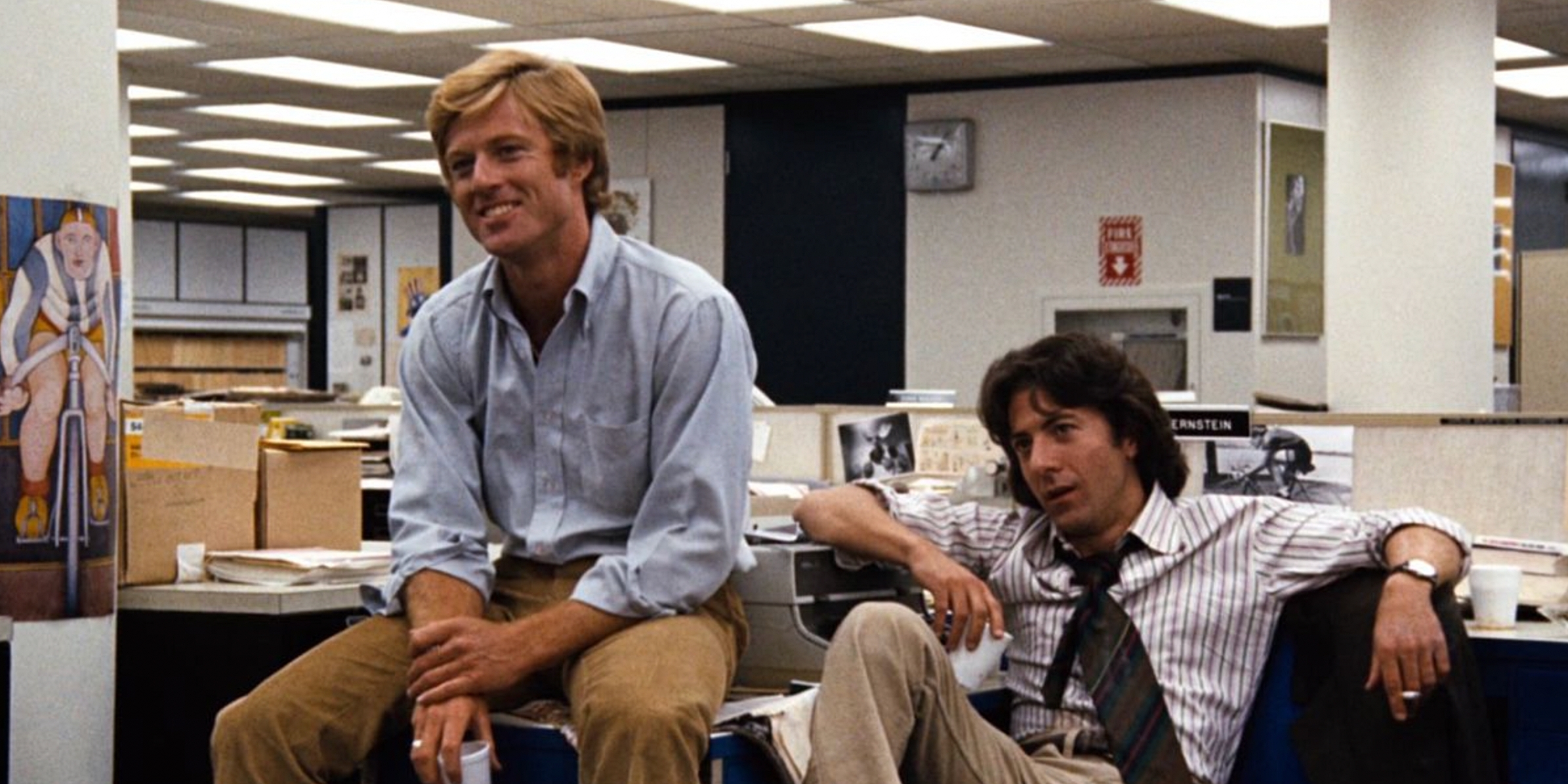 In 1976, the historic and scandalous end of the Nixon Presidency was still an open wound, especially after new President Gerald Ford pardoned his predecessor. As such, Hollywood wasted no time bringing the story to life on the big screen, or at least how that story first broke.
In 1976, the historic and scandalous end of the Nixon Presidency was still an open wound, especially after new President Gerald Ford pardoned his predecessor. As such, Hollywood wasted no time bringing the story to life on the big screen, or at least how that story first broke.
Bob Woodward and Carl Bernstein’s Watergate reporting for the Washington Post helped bring down the Nixon Presidency. In contrast, Robert Redford, Dustin Hoffman, and Alan J. Pakula’s adaptation of “All the President’s Men” didn’t do that much, aside from becoming one of the most acclaimed newspaper/political/docudramas of its kind.
In a year with several generational and era-defining classics, “All the President’s Men” did its part to help make 1976 one of the great years in cinema history, months before the last remnants of the Nixon White House were finally voted out of office as one last epilogue.
“The Candidate” (1972)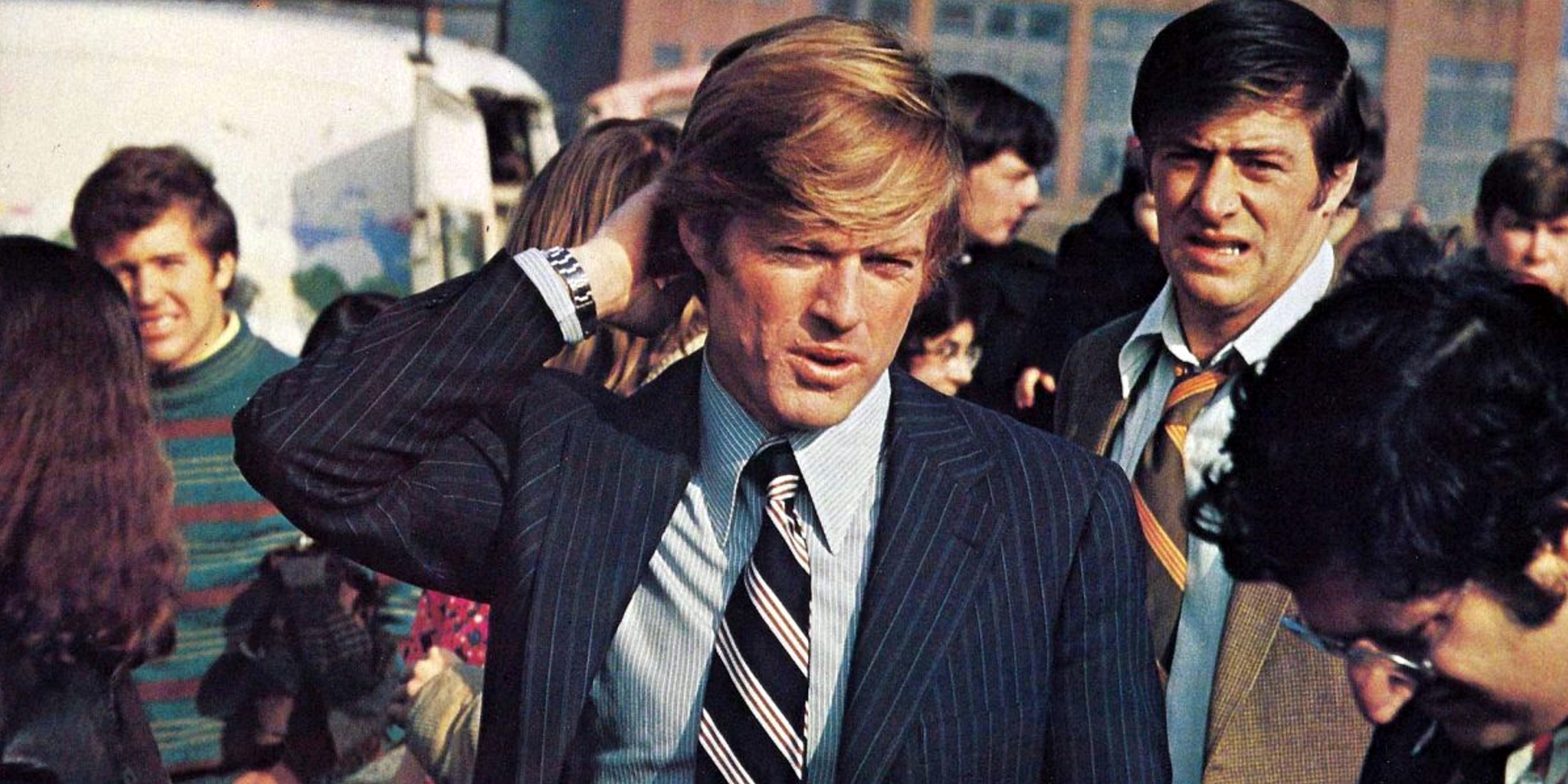 Before anyone outside of D.C. had ever heard of Watergate, political idealism and belief in the electoral system were already teetering. This was reflected right before Nixon won his second term, as Redford made his first foray into election-year cinema with “The Candidate.”
Before anyone outside of D.C. had ever heard of Watergate, political idealism and belief in the electoral system were already teetering. This was reflected right before Nixon won his second term, as Redford made his first foray into election-year cinema with “The Candidate.”
Instead of taking on a corrupt President, Redford played a last-minute Senatorial candidate whose message and ideals were corrupted by the machinery of getting him elected. But, as the film’s famous last line reflects, there may be nothing else to the whole machine beyond just winning. Soon enough, this message would only get more timely, perhaps even sooner and more shockingly than anyone imagined, even in 1972.
“Dr Strangelove” (1964)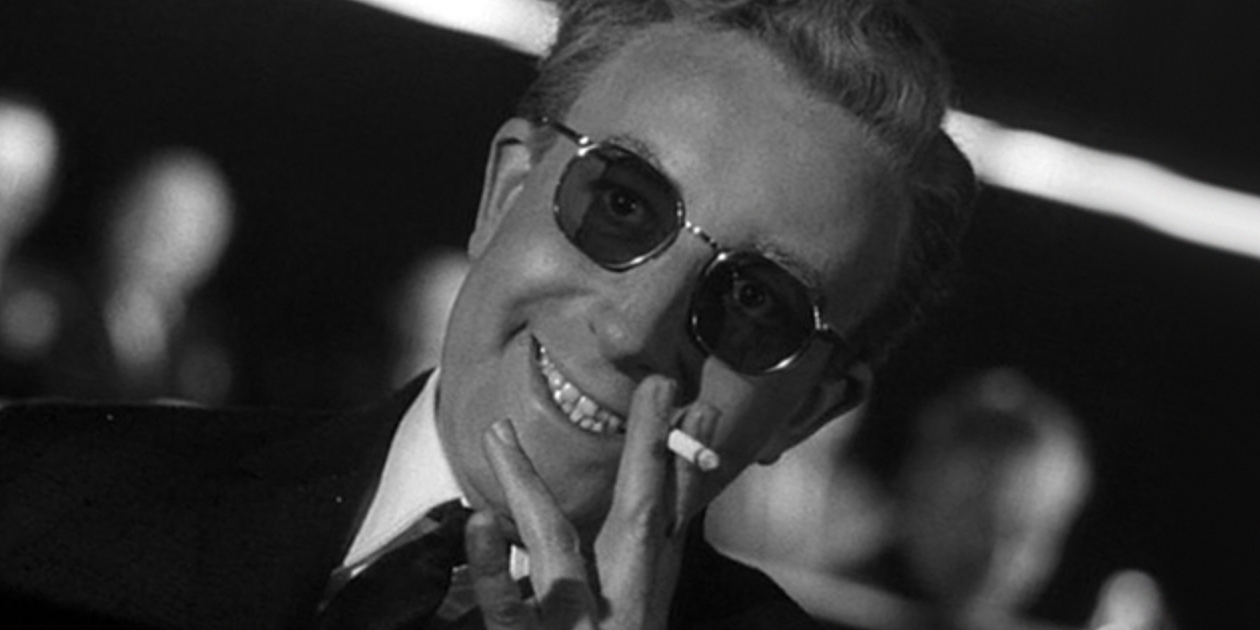 “Dr. Strangelove” had nothing to do with elections and instead had more to do with how those already in power might end the world – through buffoonery, madness, or powerlessness – before any election could vote them out. But, its release months before the 1964 election – not to mention months after the Kennedy assassination and only 18 months after the Cuban Missile Crisis – made the film especially fearsome for future voters, at least when Stanley Kubrick, Peter Sellers, George C. Scott, and many others didn’t make them laugh through their fear.
“Dr. Strangelove” had nothing to do with elections and instead had more to do with how those already in power might end the world – through buffoonery, madness, or powerlessness – before any election could vote them out. But, its release months before the 1964 election – not to mention months after the Kennedy assassination and only 18 months after the Cuban Missile Crisis – made the film especially fearsome for future voters, at least when Stanley Kubrick, Peter Sellers, George C. Scott, and many others didn’t make them laugh through their fear.
Nonetheless, voters went on to keep President Lyndon Johnson in office months later, in part because his own “Daisy” campaign had evoked fear of nuclear destruction in far less funny ways. In this context, that one-minute ad might have been the most impactful nuclear-themed production of 1964, also beating out the even more serious full-length nuclear war film “Fail Safe.”
But in the long term, “Dr. Strangelove” has been the last, most frightening, and yet perhaps most hilarious commentary on the atomic age in future election years and many more years beyond that—even now in a post- “Oppenheimer” year.
What do you think of this list? Have you seen “Civil War” yet? If so, what do you think of it? Please let us know in the comments section below or on Next Best Picture’s Twitter account.
You can follow Robert and hear more of his thoughts on the Oscars & Film on Twitter at @Robertdoc1984


